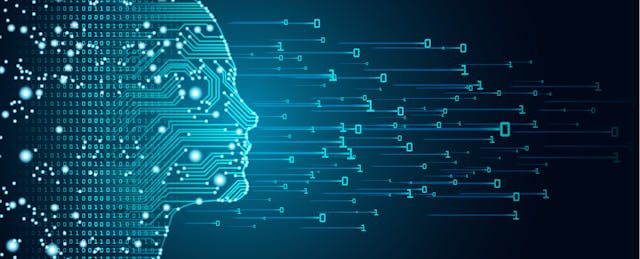Imagine a classroom where student teams are learning with a computer simulation, planning a scientific expedition to Mars. They might be challenged to think about the tools they need or the clothing and food they will bring.
As the students make decisions about their voyage to the red planet, the simulation changes until each group is following a storyline all their own.
That level of personalized learning is just one vision of researchers who are harnessing artificial intelligence to improve education. They’re getting a boost through 11 grants of $20 million each that the National Science Foundation has awarded to establish new AI research programs for education and other fields.
Jeremy Roschelle and his colleagues at the grantee AI Institute for Engaged Learning will have five years to develop an artificial intelligence program that can guide students through narrative-based STEM lessons. In other words, researchers will combine one of the newest technologies being applied to education with one of the oldest techniques: storytelling.
“How did people learn for 2,000 years? They told stories,” Roschelle explains. “With this level of funding, we didn’t want to just patch up the way school is today. Let’s take something that is deeply embedded in what it means to be a human … and let’s bring that back using AI that can create stories and can listen to kids' stories. Let’s tap into something really fundamental about how people learn.”
Immersing STEM Students in Storytelling
Roschelle is executive director of learning sciences research at Digital Promise, an education technology nonprofit, and is a co-principal investigator on the project. He says the funding and timeframe will make it possible to bring together education and artificial intelligence experts at the top of their field.
Beyond that, AI has advanced enough to help researchers take on more complex tasks.
“Mostly we’ve been looking at two-minute problems that are more logical and have a clear set of steps to get at an answer, and that’s what AI is able to help with,” Roschelle says of AI learning tools. “But when we look at our goals for learning these days, there are better things to learn. We want kids to solve problems that take hours, days, it might take a couple weeks. Previously, AI wasn’t up to that.”
Roschelle says his team is aiming for a “new level of engagement that comes when you feel part of a story,” one that can deliver personalized learning in real time. He shared the example of the Mars expedition scenario.
Unlike AI of the past, which may have been limited to processing straightforward data like test answers, today’s technology can take data from multiple sources to make decisions about how to tailor students’ experiences.
“That can be what they say when they’re collaborating, it could be the work they do on a whiteboard together, could be problems they solve,” he says. “It might be noticing the level of excitement in the classroom. There are technologies now that follow how often kids are talking versus teacher talking. It could notice that kids have really quieted down and that the teacher is having to push harder, and it might change the script for what’s happening based on that.”
Preparing for Students’ Second Act
With a focus on adult learners, the AI Institute for Adult Learning and Online Education, or ALOE, will look to improve online education for the more than 100 million American workers who will need to “reskill” over the next 10 years.
It will also learn from the massive amounts of data generated by online students that isn’t accessible in traditional in-person classes.
“COVID-19 has changed our world,” says Ashok Goel, a Georgia Tech computer science professor who will serve as the institute’s executive director. “Though K-12 will become mostly in-person again because kids need teachers, adult education will remain online to a large degree. It will become a hybrid, a mixture. There’s a much larger need today than even one year back, and the need is going to grow.”
Unlike undergraduates who relocate for college all the time, adult learners have homes and families that make moving unrealistic. That’s where online education comes in. Goel says ALOE will be part of the solution by developing highly personalized virtual assistants—a specialty of Goel’s previous research—to support students through their studies and address three main problems with online education.
“Online education is boring. When you go to a physical classroom, you meet people, you’re part of study groups. It’s live, it’s dynamic and vibrant,” Goel says. “Online learning, you’re just looking at a screen.”
Other challenges are that online students don’t have the same level of interaction with instructors or teaching assistants, he explains, and lack the social interaction and peer-to-peer learning students experience by being on campus.
Goel envisions creating an AI program that could adjust itself to students’ individual needs in a couple of hours, rather than one-size-fits-all approaches that have been deployed in the past. The initiative will also work to do what similar projects have not yet accomplished: scale up the virtual assistant program to serve millions of students.
“You could tune it to the teaching assistant interrupts you, motivates you, engages you at the times that you want it,” Goel says. “Some students have full-time jobs, and they can [study] only in the evenings. Some have families, the only time they can do it is one hour in the morning. So with 100 million workers, typical age 40 or 50, married or [with] families, how in the world are you going to do it if you don’t personalize it?”
Goel also sees the initiative as an opportunity to do good at a time when many still view AI technology with suspicion.


